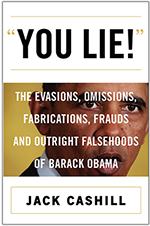Dissecting the Interest
in Kansas’ Tax-Rate Cutting
![]()
© Jack Cashill
Published in Ingramsonline.com - August 2014
John Meara did not move his accounting firm, Meara Welch Browne, from Missouri to Kansas simply because Kansas Gov. Sam Brownback signed HB 2117 into law in 2012—but that bill was incentive enough to make the difference.
Kansas City had been prompting him to move for most of the 35 or so years the firm had been in the business, 25 of those on the Country Club Plaza. The earnings-tax bite started small and kept growing. Basic city services started strong but kept declining. And lately, water main breaks were playing havoc with the firm’s IT capabilities.
Other than inertia, what kept the firm on the Missouri side of the state line were Kansas state income taxes. Up until two years ago, these were higher than Missouri’s and considerably higher than those in surrounding states.
That changed with HB 2117. The bill effectively reduced the tax on the top tax bracket from 6.45 percent to 4.8 percent and on the bottom from 3.5 percent to 2.7 percent. More critically for Meara, the bill eliminated the tax on “pass-through” income for LLCs, S corporations, partnerships, farms, and sole proprietorships.
As a partner in the firm, Meara would still have to pay state income tax on his salary, but he would not have to pay state tax on his share of the firm’s profits. Given the incentive, Meara Welch Browne moved just a block west of State Line into Kansas, and that was as far as he had to go.
With only 22 total employees, three of them partners, Meara lacked the clout to negotiate an incentives deal. Besides, as a matter of principle, he disliked the local tradition in which companies with connections on either side of the state line wangled deals through old-boy networks in statehouses and City Council back rooms.
As an example, Meara cited the recent decision by CBIZ to move from Kansas to Missouri. Meara explained who the players were in that deal and how the strings were pulled to make it happen. There is no need to name names, but one major stakeholder put out the word, said Meara: “Do what you have to do to get them into that building.” The “them” was CBIZ. The building was the Plaza Steppes, nearly cavernous after Polsinelli, P.C. moved to its new digs last year.
As a result of these machinations, Amy Susan of the Missouri Department of Economic Development told The Kansas City Star, “CBIZ could access as much as $25.4 million in incentives.”
None of which is a knock on CBIZ. The perverse incentive in all of this is that, for public companies like CBIZ, executives could be accused of short-changing shareholder interests if they didn’t pursue such deals.
But what happens in Missouri is instructive. Under the new tax law in Kansas, incentives are above-board and equal opportunity. You don’t have to be a player—or hire one—to get a deal. “In Kansas, it is the rule of law,” said Meara. “In Missouri, it is still the rule of men.”
As someone who knows something about the way tax cuts play out, Meara would have been suspicious if Kansas employment and revenue numbers jumped in Year One of the lower rates. As he observes, given existing lease obligations, it takes considerable time for a business to move across the state line and more still to move from beyond the region.
In that his firm was poised to move quickly, Meara is among the few capable of assessing the real-world outcomes. To date, the results are as anticipated. Several of his employees have moved or are planning to move their families to Kansas and start paying Kansas taxes across the board. In addition, the savings in taxes on the pass-through income have given the firm the capacity to expand.
As Meara and every responsible adult in the state recognized, Kansas had to do something. In the dozen years leading up to the bill’s passage, the only employment sector in Kansas that experienced net job growth was local government. Fewer Kansans were employed by the private sector in 2012 than in 2001. The surrounding states with lower tax rates were all performing better.
Since the tax cut went into effect, the national media have taken an oddly perverse interest in the Kansas economy. The very same pundits who are still encouraging us to give Obama’s economic policy more time are raining doomsday predictions on a Kansas policy that kicked in more than three years after Obama took office.
Meara’s firm got a sense of how the media roll when a crew from the national PBS operation visited the office and talked to partner Steve Browne. As Meara relates, the producer tried every which way to get Browne to admit that the purpose of the tax cuts was to engorge the state’s fat cats. Browne stuck to the truth. It didn’t matter. “What they were going to report had already been decided,” says Meara.
The fact that Kansas cut income taxes for everyone who pays them does not hold much interest for the chattering classes. Nor does the fact that in 2013, the first full year of the tax cuts, real GDP for the private sector in Kansas grew at a rate of 2.4 percent. National GDP in that same year grew at 2.2 percent. In 2012, private sector GDP in Kansas rose only 0.5 percent.
The media continue to remind Kansans—anyone who will listen, for that matter—that the state’s private job growth still lags behind the region and nation, but, as The Wall Street Journal reports, “Since the tax cuts took effect in January 2013, Kansas has actually whittled the employment gap with neighboring states.”
So why the hysteria? Meara did not say this, but I will: The players who make moves like CBIZ’s happen have been cut out of the power loop. Although these people think quite alike, they are almost inevitably Democrats on the Missouri side and Republicans on the Kansas side. They simply gravitate to the power source in their particular state. Principle is for chumps.
Worse, they have the media’s ear. Only in America’s newsrooms does anyone believe their vintage bull, “I didn’t leave the party, the party left me,” The rest of us hear, “Help, we’re getting cut out of the loop.”
If Sam Brownback is an “extremist” for lowering the tax rates, so were Ronald Reagan and JFK. Meara is not worried about the outcome. He says of the Kansas tax law, “If they leave it alone, it will work. That’s all there is to it.”




